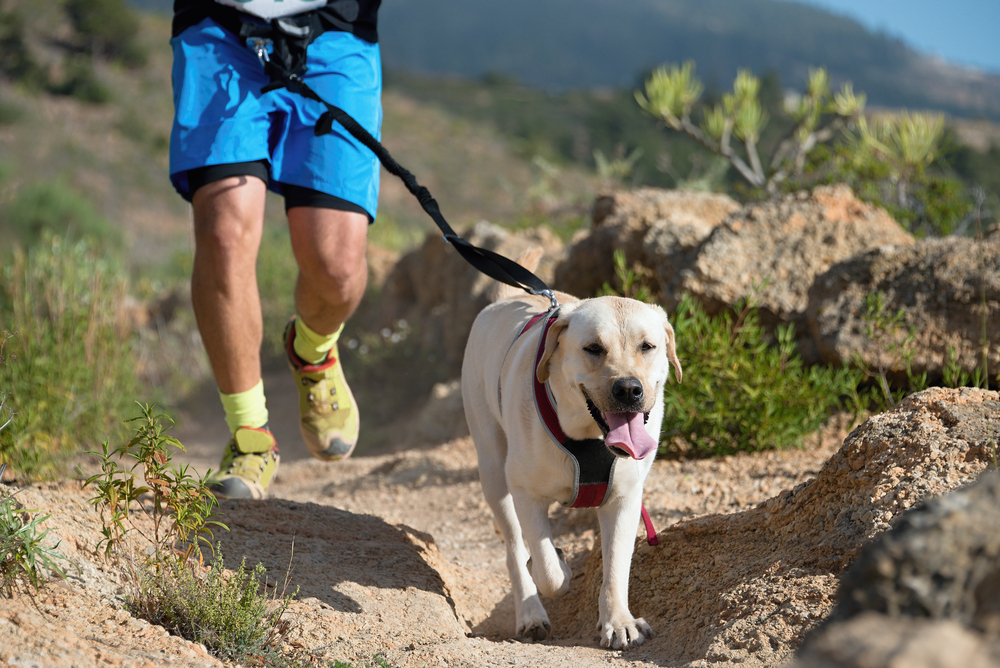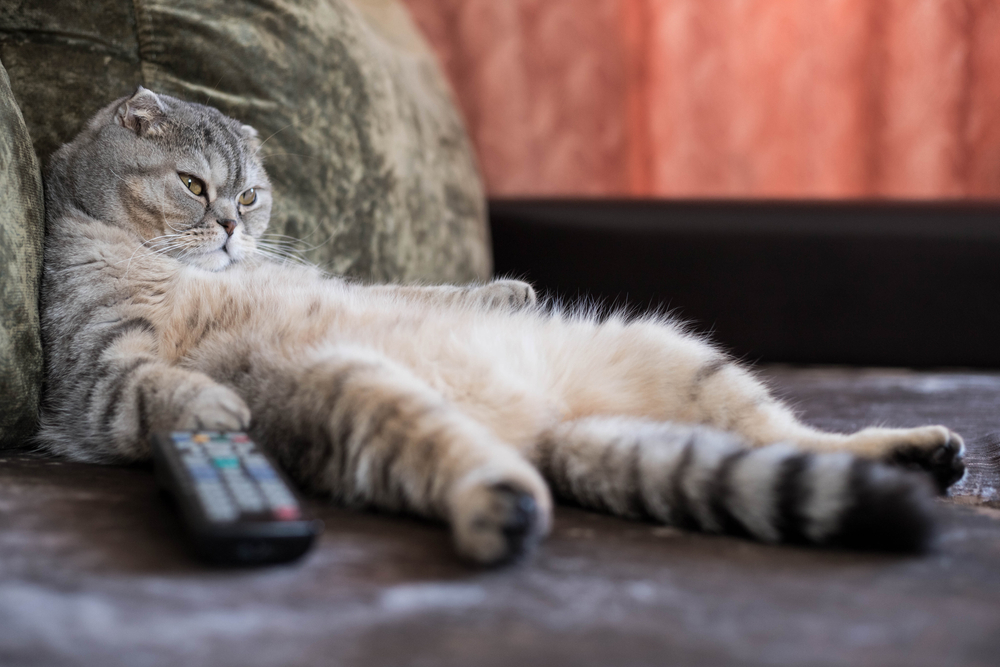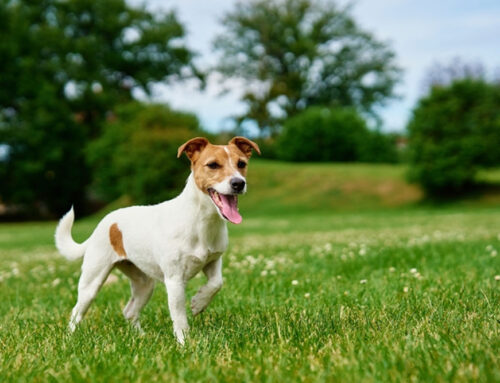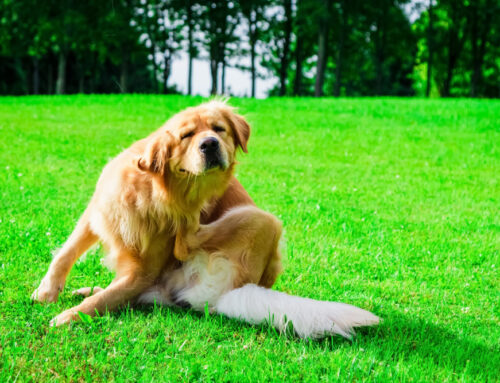Popular culture celebrates chubby Chihuahuas and portly pit bulls, but the cruel reality is that overweight pets are suffering. Obesity significantly shortens pet lives, increases the risk for many inflammatory diseases, and alters their behavior. Your trusted south Austin vet, Oliver Animal Hospital, understands that talking about your pet’s weight during their appointment can be difficult, so we’ve collected our most frequently asked questions about pet obesity and weight management in one convenient guide.
Question: What is a healthy weight for pets?
Answer: Dogs and cats come in so many diverse shapes and sizes that assigning a numerical weight number for each would be impossible or inaccurate. Ideal weight is highly individual, according to the pet’s structure, life stage, and metabolism. The most practical way to determine a healthy pet weight is to look beyond the scale, and assess your pet’s physical condition:
- Can you feel your pet’s ribs? — Each rib should be easy to palpate without pressure, rather than buried beneath fat layers.
- Does your pet have a noticeable waist or tuck behind their ribcage? — If your pet has more straight lines than curves here, they are carrying too much weight.
Q: How did my pet become overweight?
A: Many factors can result in pet obesity, including pet lifestyle and medical conditions. Routine examinations at your vet in south Austin can help identify significant health changes before they become problematic. The most common reasons why pets become overweight include:
- Lack of exercise
- High fat diet
- Overfeeding
- People food or table scraps
- Veterinary conditions, such as hypothyroidism, Cushing’s disease, or ascites (i.e., fluid retention)
- Chronic medication
Q: Lots of pets are overweight, so what’s the big deal?
A: Excess body fat is stored as adipose tissue, which is useful for energy storage, protection, and insulation, but is also naturally pro-inflammatory. Long-term inflammation creates an unhealthy environment in the body, which becomes more susceptible to:
- Cancer
- Osteoarthritis
- High blood pressure
- Diabetes mellitus
- Kidney disease
- Respiratory problems
- Heart disease
Q: Why do I need to see the veterinarian about my pet’s weight loss when I can buy low-fat food at the pet store?
A: When your overweight pet is examined at Oliver Animal Hospital, we establish a baseline for their health that allows us to rule out any medical causes. This is critical, because attempting weight loss through self-guided calorie restriction can be dangerous if the pet’s food is not nutritionally balanced, and ineffective if your pet has an undiagnosed metabolic condition.
Your south Austin vet can design a custom weight loss plan based on your pet’s current body condition, age, personality, and nutritional needs. Your pet will lose weight at a steady and sustainable rate, without sacrificing nutrients. Their weight loss plan will focus on:
- Nutritional counseling — Veterinary weight loss diets are high in fiber while remaining nutritionally balanced, so your pet feels full, and develops lean muscle as they lose weight. Some formulations actually alter your pet’s metabolism to enhance calorie burn.
- Exercise recommendations — Overweight pets can be harmed by inappropriate exercise. We provide low-impact exercise suggestions that will protect your pet’s compromised joints and cardiovascular system, while promoting effective movement.
- Regular check-ins — Frequent visits let us chart your pet’s progress, and make necessary adjustments.
Q: What can I do if my pet doesn’t like to exercise?
A: When pets are reluctant to be physically active, we must first rule out pain or medical causes. They could be suffering from painful arthritis in their hips, elbows, and spine that makes activity uncomfortable and unappealing. Medication to control your pet’s pain or physical signs may restore their interest in exercise.
Pets have individual exercise preferences. Try swimming, hydrotherapy, fitness exercises, or interactive food puzzle games that encourage movement and critical thinking.
Q: How can I prevent my pet from becoming overweight?

A: Pet obesity prevention is a lifelong task requiring vigilance and flexibility. Your pet’s physical and caloric needs will change throughout their lifetime, making regular assessment and routine preventive care a necessity. Keeping your pet fit can become a natural way of life, by remembering these key principles:
- Calories in must equal calories out — If your pet has eaten more, you must increase their exercise level. If your pet has received a lot of treats, such as for training, you must adjust their meal size, to account for the extra calories.
- Daily exercise is important for all pets — Exercise improves your pet’s physical fitness, stimulates their mind, and improves the pet-owner bond. Get creative, and find new and fun ways to get your pet moving.
- Be exact about measurements — Measure your pet’s food with a measuring cup, and feed at specific meal times. Do not free-feed, or allow your pet to graze.
- Body condition changes should be addressed by your veterinarian — Sudden changes can indicate an underlying medical issue.
Pet obesity can be a sensitive subject, but to give pets the best health and quality of life, we must be realistic about its devastating effects, and stop glorifying overweight dogs and cats. To begin the conversation about your pet, schedule an appointment with your south Austin vet at Oliver Animal Hospital.







Leave A Comment